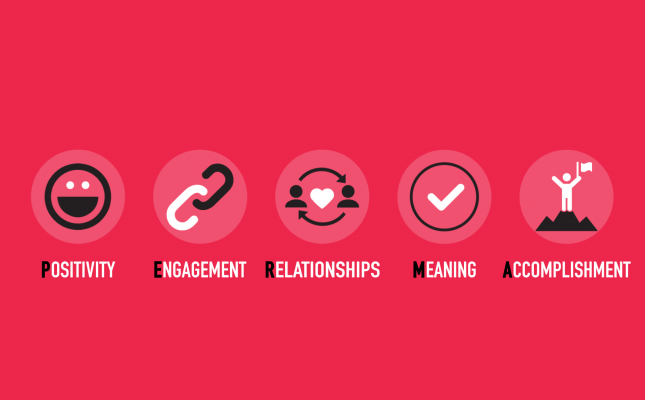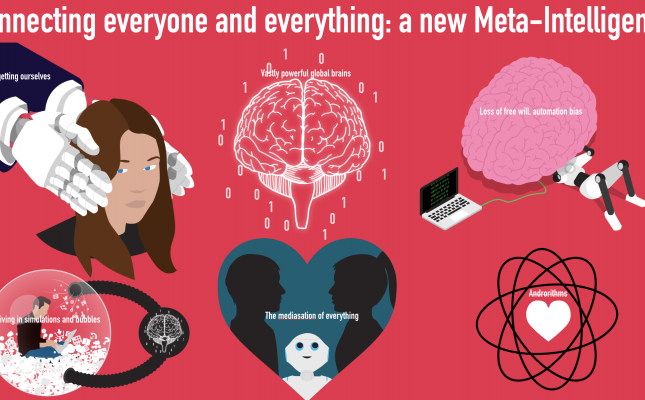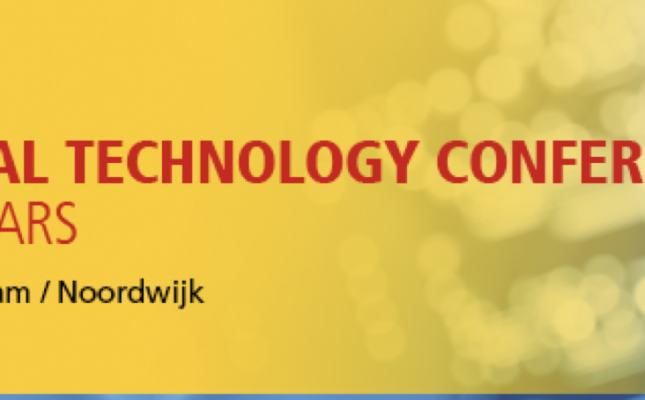Martin Seligman: We Aren’t Built to Live in the Moment (why we are all futurists) via NYT
“What best distinguishes our species is an ability that scientists are just beginning to appreciate: We contemplate the future. Our singular foresight created civilization and sustains society. It usually lifts our spirits, but it’s also the source of most depression and anxiety, whether we’re evaluating our own lives or worrying about the nation. Other animals have springtime rituals for educating the young, but only we subject them to “commencement” speeches grandly informing them that today is the first day of the rest of their lives.
A more apt name for our species would be Homo prospectus, because we thrive by considering our prospects. The power of prospection is what makes us wise. Looking into the future, consciously and unconsciously, is a central function of our large brain, as psychologists and neuroscientists have discovered — rather belatedly, because for the past century most researchers have assumed that we’re prisoners of the past and the present.”
Opinion | We Aren’t Built to Live in the Moment
https://www.nytimes.com/2017/05/19/opinion/sunday/why-the-future-is-always-on-your-mind.html
via Instapaper
A more apt name for our species would be Homo prospectus, because we thrive by considering our prospects. The power of prospection is what makes us wise. Looking into the future, consciously and unconsciously, is a central function of our large brain, as psychologists and neuroscientists have discovered — rather belatedly, because for the past century most researchers have assumed that we’re prisoners of the past and the present.”
Opinion | We Aren’t Built to Live in the Moment
https://www.nytimes.com/2017/05/19/opinion/sunday/why-the-future-is-always-on-your-mind.html
via Instapaper
Human ingenuity will be the genesis for IoT prosperity: thoughtful piece by Jeanne Beliveau-Dunne (Cisco)
“As business leaders, we must think beyond the fiscal bottom line and technological advances in products and services and ask ourselves, how will IoT affect the communities we operate in and whatwill our role be in readying society and the workforce for this digital phenomenon that is rapidly proliferating? Technology itself has no ethics. It is only when people apply purpose and innovative thinking beyond revenue and profit that we will be able to reap collective benefits and security of the digital world.
We explored this topic in depth at the recent IoT World Forum in London, where renowned futurist Gerd Leonhard provided us a stunning window into the ethics of IoT and the critical role of human ingenuity in designing and shepherding its outcomes. (Watch the replay of Gerd’s keynote, moderated by Cisco’s CMO, Karen Walker: “Beyond Business: A Holistic View of the Societal and Human Impact of IoT.”)
As the IoT World Forum team put its agenda together for an influential community of C-suite executives in London, there was a realization that we needed to address this topic, as provocative (and sobering) as it might be. We recognized that we had to acknowledge the “elephant in the room”: that we are in unchartered territory, as we enter into this new era of exponential change together. When we think about what the implications are of a rapid surge in IoT innovation, we must all collectively consider the potential effects on the geopolitical and global economic landscape (in both advanced and developing nations); on global challenges such as wealth inequality, aging populations, healthcare, and the environment; and on the global workforce. Of course, no one has all the answers, but we must be bold in exploring these issues as a global business community. I will explore this in more depth in my next blog, but I will say that we know we need a global unified approach to succeed. No one can go it alone, and a “head in the sand” mentality is not an option.”
Human ingenuity will be the genesis for IoT prosperity
https://www.cio.com/article/3212868/digital-transformation/human-ingenuity-and-iot-prosperity.html
via Instapaper
We explored this topic in depth at the recent IoT World Forum in London, where renowned futurist Gerd Leonhard provided us a stunning window into the ethics of IoT and the critical role of human ingenuity in designing and shepherding its outcomes. (Watch the replay of Gerd’s keynote, moderated by Cisco’s CMO, Karen Walker: “Beyond Business: A Holistic View of the Societal and Human Impact of IoT.”)
As the IoT World Forum team put its agenda together for an influential community of C-suite executives in London, there was a realization that we needed to address this topic, as provocative (and sobering) as it might be. We recognized that we had to acknowledge the “elephant in the room”: that we are in unchartered territory, as we enter into this new era of exponential change together. When we think about what the implications are of a rapid surge in IoT innovation, we must all collectively consider the potential effects on the geopolitical and global economic landscape (in both advanced and developing nations); on global challenges such as wealth inequality, aging populations, healthcare, and the environment; and on the global workforce. Of course, no one has all the answers, but we must be bold in exploring these issues as a global business community. I will explore this in more depth in my next blog, but I will say that we know we need a global unified approach to succeed. No one can go it alone, and a “head in the sand” mentality is not an option.”
Human ingenuity will be the genesis for IoT prosperity
https://www.cio.com/article/3212868/digital-transformation/human-ingenuity-and-iot-prosperity.html
via Instapaper
Have Smartphones Destroyed a Generation? Some serious food for thought via The Atlantic
“a generation shaped by the smartphone and by the concomitant rise of social media. I call them iGen. Born between 1995 and 2012, members of this generation are growing up with smartphones, have an Instagram account before they start high school, and do not remember a time before the internet. The Millennials grew up with the web as well, but it wasn’t ever-present in their lives, at hand at all times, day and night. iGen’s oldest members were early adolescents when the iPhone was introduced, in 2007, and high-school students when the iPad entered the scene, in 2010. A 2017 survey of more than 5,000 American teens found that three out of four owned an iPhone.
The advent of the smartphone and its cousin the tablet was followed quickly by hand-wringing about the deleterious effects of “screen time.” But the impact of these devices has not been fully appreciated, and goes far beyond the usual concerns about curtailed attention spans. The arrival of the smartphone has radically changed every aspect of teenagers’ lives, from the nature of their social interactions to their mental health. These changes have affected young people in every corner of the nation and in every type of household. The trends appear among teens poor and rich; of every ethnic background; in cities, suburbs, and small towns. Where there are cell towers, there are teens living their lives on their smartphone.
To those of us who fondly recall a more analog adolescence, this may seem foreign and troubling. The aim of generational study, however, is not to succumb to nostalgia for the way things used to be; it’s to understand how they are now. Some generational changes are positive, some are negative, and many are both. More comfortable in their bedrooms than in a car or at a party, today’s teens are physically safer than teens have ever been. They’re markedly less likely to get into a car accident and, having less of a taste for alcohol than their predecessors, are less susceptible to drinking’s attendant ills.
Psychologically, however, they are more vulnerable than Millennials were: Rates of teen depression and suicide have skyrocketed since 2011. It’s not an exaggeration to describe iGen as being on the brink of the worst mental-health crisis in decades. Much of this deterioration can be traced to their phones.”
Have Smartphones Destroyed a Generation? - The Atlantic
https://www.theatlantic.com/magazine/archive/2017/09/has-the-smartphone-destroyed-a-generation/534198/
via Instapaper
The advent of the smartphone and its cousin the tablet was followed quickly by hand-wringing about the deleterious effects of “screen time.” But the impact of these devices has not been fully appreciated, and goes far beyond the usual concerns about curtailed attention spans. The arrival of the smartphone has radically changed every aspect of teenagers’ lives, from the nature of their social interactions to their mental health. These changes have affected young people in every corner of the nation and in every type of household. The trends appear among teens poor and rich; of every ethnic background; in cities, suburbs, and small towns. Where there are cell towers, there are teens living their lives on their smartphone.
To those of us who fondly recall a more analog adolescence, this may seem foreign and troubling. The aim of generational study, however, is not to succumb to nostalgia for the way things used to be; it’s to understand how they are now. Some generational changes are positive, some are negative, and many are both. More comfortable in their bedrooms than in a car or at a party, today’s teens are physically safer than teens have ever been. They’re markedly less likely to get into a car accident and, having less of a taste for alcohol than their predecessors, are less susceptible to drinking’s attendant ills.
Psychologically, however, they are more vulnerable than Millennials were: Rates of teen depression and suicide have skyrocketed since 2011. It’s not an exaggeration to describe iGen as being on the brink of the worst mental-health crisis in decades. Much of this deterioration can be traced to their phones.”
Have Smartphones Destroyed a Generation? - The Atlantic
https://www.theatlantic.com/magazine/archive/2017/09/has-the-smartphone-destroyed-a-generation/534198/
via Instapaper
New video: Futurist Gerd Leonhard’s Keynote at DHL Global Technology Conference 2017. Shifting Gears: Technology and Humanity
A big thank you to DHL for inviting me and for making this recording available ! Download the PDF with my slides: Shifting gears technology humanity the future shared deck gerd leonhard DHL Global Tech Download this, and many other videos, via GerdCloud, my Public Cloud:)
Read moreThe Real Risks of AI – via NewCo Shift (food for thought)
“AGI can be something that we have virtually no understanding or recognition of, but which may have a significant understanding of us if it is given access to the Internet or a significant data repository.
Such a lack of mutual understanding is where all of the real risks reside. This is what should be talking about when we talk about worst case scenarios. We erroneously assume that we will be able to recognize AGI as such.”
The Real Risks of AI – NewCo Shift
https://shift.newco.co/the-real-risks-of-ai-86d031151798
via Instapaper
Such a lack of mutual understanding is where all of the real risks reside. This is what should be talking about when we talk about worst case scenarios. We erroneously assume that we will be able to recognize AGI as such.”
The Real Risks of AI – NewCo Shift
https://shift.newco.co/the-real-risks-of-ai-86d031151798
via Instapaper













